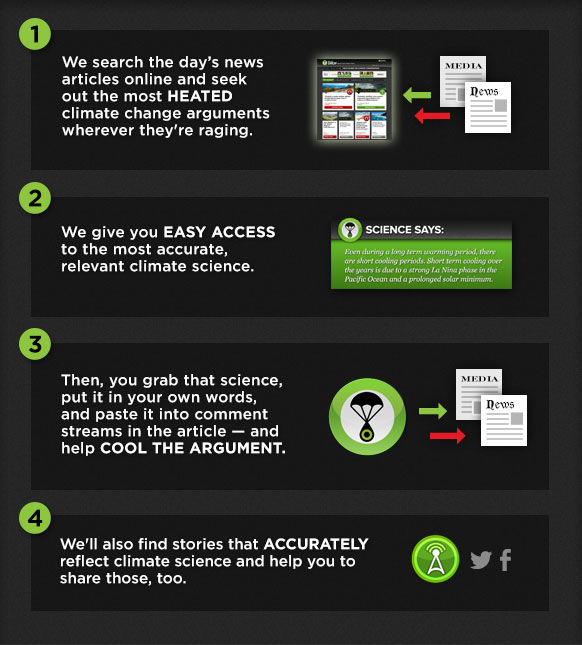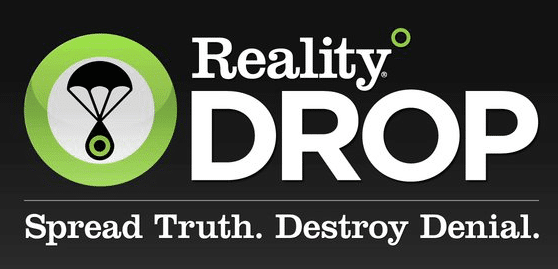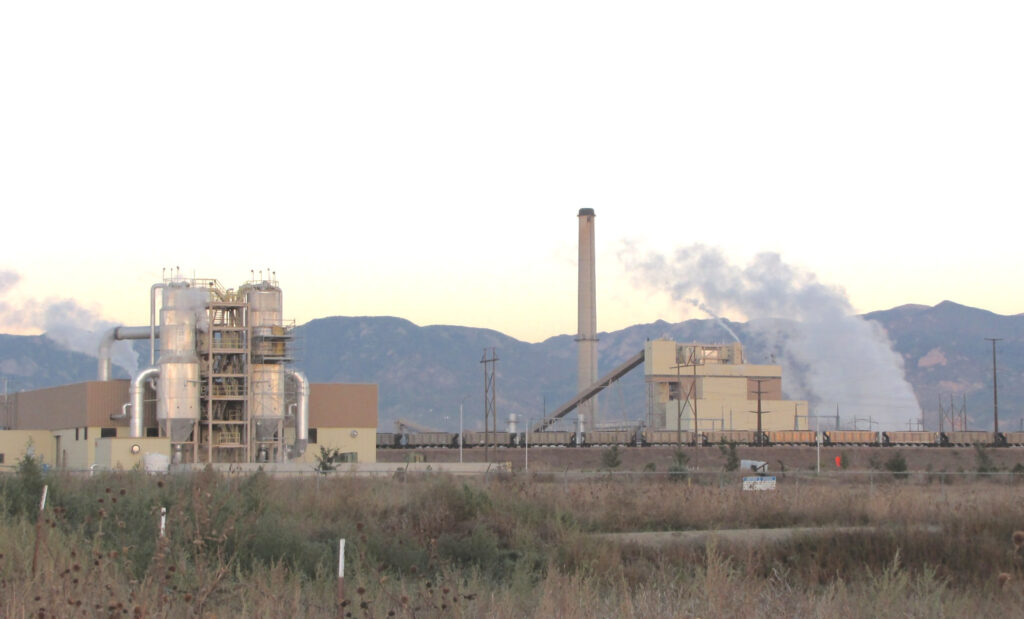If you spend any time at all reading online articles or blogs about climate change (and of course you do, you’re here), and you like to punish yourself by scrolling down to the comments, you know how quickly the anti-science shysters and merchants of doubt pounce.
Having posted hundreds upon hundreds of climate-related items over the past decade or so, I can practically predict the canned comments before they’re posted. Pay any attention to them, and you’ll pretty quickly come to realize that the same talking points surface again and again and again.
There’s a good reason for this – the climate denial communications machine is very well funded, and has plenty of shadowy channels to help funnel this disinformation into comments sections and Facebook feeds and Twitter and everything else.
Well now there’s a great new weapon that the pro-science crowd can use to help fight the good battle against climate disinformation. It’s called Reality Drop, and it dropped this week from the good truth-tellers at the Climate Reality Project.
Basically, Reality Drop uses competitive gaming techniques to combat climate denial online. It combines the best of science-based written arguments, with this new gaming mechanism to really encourage users to spread climate truth.

There already exist a handful of great resources for combatting the boilerplate “hot air” arguments of the denial crowd. Skeptical Science has long been a must-use tool, with science-based arguments tailor made to rebut the most common climate denial myths. (And, in fact, Reality Drop was developed in collaboration with Skeptical Science, whose creator John Cook long ago made all of his website’s rebuttals “open source” for anyone to use.) Along similar lines, our friends at Grist have been publishing the very-useful “How to Talk to a Climate Skeptic” series for years now.
Reality Drop serves not only to deliver the science-based content, but provides really clever and effective web-based tools for any adherent of climate science to better engage in online “discussions” (I’m trying to be civil here) and make sure that the truth shines through the – how should we say? – PR pollution that’s clouding climate science. Check out the video explanation:
Introducing Reality Drop from Climate Reality on Vimeo.
So, in essence, users can find posts online where disinformation is being spread, and “drop” some scientific reality into the conversation. The science-based rebuttals are tailor-made for all of the most common “copy-and-paste” denier talking points.
So, say you find a comment by “earthisflat365” on a National Geographic article about Greenland’s ice sheets that says, “…but Antarctica is gaining ice.” Click over to Reality Drop and find the relevant rebuttal – here it is – and drop some reality.
You don’t even need to stumble upon the myths and lies yourself. Reality Drop gathers a bunch of links daily to posts that could use a dose of truth. Here’s how Maggie Fox, President and CEO of the Climate Reality Project, describes the tool in action:
Each day, we feature a roundup of climate news from around the world that demands a response. Some articles may contain misleading quotes from a climate denier. And in other cases, distortions of the truth are polluting the comment section. Reality Drop matches each article with the appropriate climate fact. To respond, you simply go to the article, take the response from Reality Drop, and put it into your own words. In only a minute, you’ve helped change the conversation.
So far, there are 106 myths cataloged on Reality Drop, each one complemented by a thorough, science-backed rebuttal with an abundance of links to actual research and primary source material.
It’s more than a one-stop shop for combatting disinformation – it’s a game in which just by playing, we all come out winners.
Subscribe to our newsletter
Stay up to date with DeSmog news and alerts






